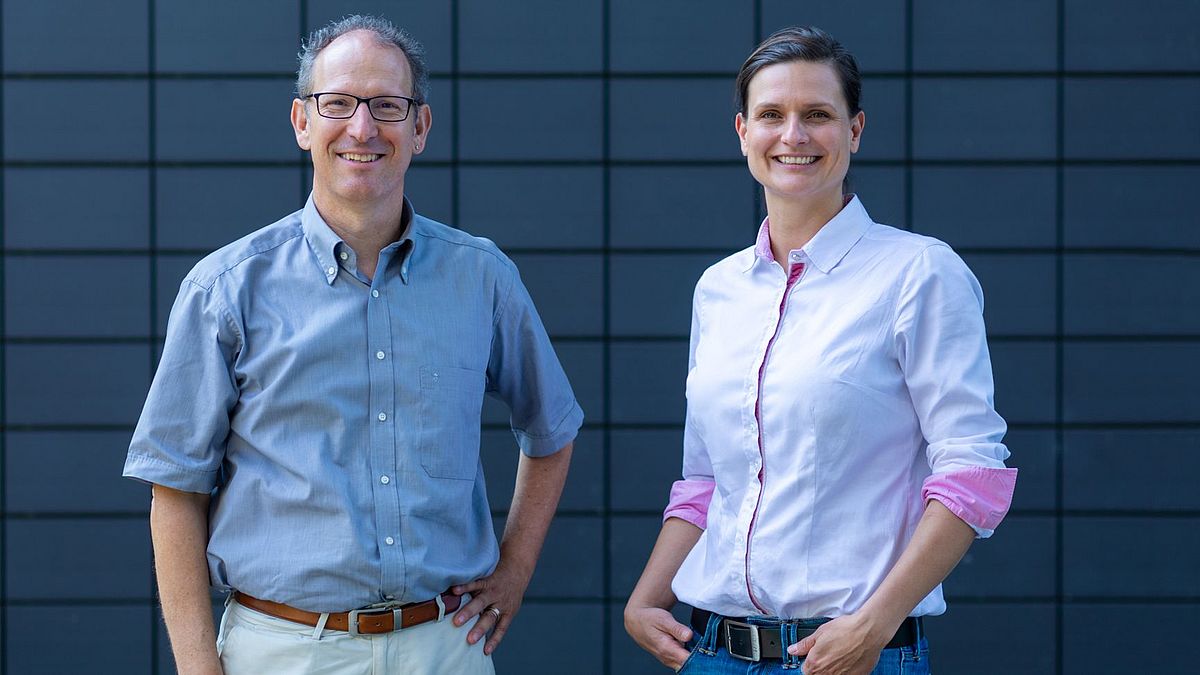Digital Transformation
The University of Bremen has set itself the goal of utilizing the opportunities afforded by digitalization in a responsible way to share knowledge, strengthen collaboration, and promote free thinking and free agency.
We want to use novel digital methods and powerful information infrastructures to collaborate more closely with our partner institutions in Europe and the rest of the world – in world-class research and for inspiring, student-focused teaching.
At the same time, digitalization allows us to make curricula and working structures even more flexible, and thus better able to respond to a wide variety of personal circumstances and individual requirements.
In shaping the digital transformation at the University of Bremen, we are focusing strategically on three areas:
1. Sustainability
With its strategic positioning “Green in IT”, the university is committed to a sustainable and environmentally friendly IT infrastructure. Focusing on our Green IT Housing Center, we want to think ahead and work together to find solutions for greater energy efficiency, renewable energies and energy reduction. In addition, we see great potential through “Green by IT”, the sustainable development of products and services by designing our IT systems and processes in such a way that they do not harm the environment and even have a positive impact on the environment.
2. Digital transformation of work processes
By implementing digital tools and platforms, we want to improve communication and collaboration between employees in all service areas and optimize as well as automate work processes. Employees should be encouraged to help develop, test and implement innovative solutions. Together we determine how we want to work in the future.
3. AI-based systems
The transformative power of AI-based systems must not only be understood, but also designed, used and critically classified. Our aim is to create good examples of how AI-based systems can be integrated into administration, research and transfer, studies and teaching in a legally compliant and simple manner. To achieve this, we need to build up the AI skills of our employees and use them to shape a future-proof, modern university. This requires a technical infrastructure for AI-based systems that replaces sporadic and unsystematic use and creates reliable governance. A critical approach that assesses and continuously evaluates the risks as well as the opportunities remains important.

The CDO Team has collated some useful information here about the digital transformation of the University of Bremen!
Tel.: +49 421 218-60042
Email: cdoprotect me ?!uni-bremenprotect me ?!.de
Consolidating the digital infrastructure and the staffing levels for IT is crucial for the further development and quality of research, teaching, and their administration.
Hence in 2021, the university management decided to amalgamate the central multimedia and IT services provided by the above-named organizational units – Center for Networks (ZfN), Center for Multimedia in Higher Education (ZMML), and Administrative Department 5 – under one new roof. The university management views this as a necessary structural development which is in line with contemporary developments and is also progressive and beneficial to the university as a whole.
When this process is finished, a central IT unit will have been created in which all staff work together in a highly satisfying environment to provide a professional and innovative service designed to meet the needs of its users. The development goals of the new unit are to
- enhance the transparency of services and responsibilities by means of a clearly defined, needs-oriented portfolio of services and clear support structures,
- improve collegial collaboration by means of standardized IT processes and by literally working side by side within the centralized IT hub,
- create more scope for development projects and the individual professional development of the IT staff.
The reorganization will be supervised by the President in close expert consultation with the Chief Digital Officer (CDO) and monitored by the Staff Council. The President has commissioned a project team comprising the SPE Staff Unit and the Science Manager for Digital Transformation to undertake this work.
The process of reorganization is designed to be participatory. All staff in the organizational units concerned – ZMML, ZfN, and Administrative Department 5 – have the opportunity to contribute their experience and expertise to the analysis of the actual status and the planning of the new centralized IT unit. Following phases of planning (fall 2021), analysis (winter 2021-fall 2022) and conception (2023), gradual implementation will take place in 2024.
